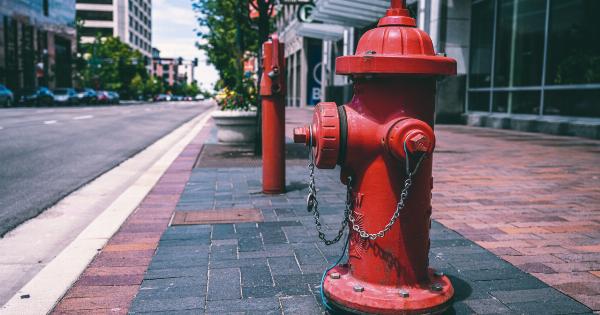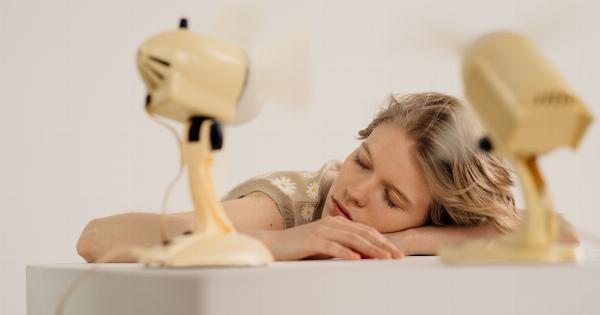As a new parent, it is natural to have concerns about your baby’s comfort and safety. One question that often arises is whether it is safe to use an air conditioner around a baby.
With the increasing prevalence of air conditioning in homes, it is essential to understand the potential risks and benefits to make an informed decision. In this article, we will explore the impact of air conditioning on babies and provide you with the information you need to keep your little one comfortable and safe.
Understanding the impact of air conditioning on babies
Air conditioning systems work by cooling and dehumidifying the air in a specific environment. While they provide relief from hot and humid conditions, they also come with potential drawbacks, especially for babies who have delicate systems.
Here are a few factors to consider when using an air conditioner around your baby:.
1. Temperature regulation
Babies have limited ability to regulate their body temperature, especially in the first few months of life. Exposing them to extremely cold temperatures can result in discomfort and may even lower their body temperature below normal levels.
It is important to set the air conditioner’s temperature at a moderate level, ideally between 68-72°F (20-22°C).
2. Dry air and skin irritation
Air conditioners remove humidity from the air, which can lead to dryness. The dry air may cause your baby’s skin to become dry and irritated.
To counter this, you can use a humidifier alongside your air conditioner to add moisture to the air and prevent skin dryness.
3. Allergy and respiratory concerns
Improperly maintained or dirty air conditioners can accumulate dust, allergens, and molds, which can affect the air quality in your home.
Babies are particularly vulnerable to respiratory issues, so it is crucial to clean and maintain your air conditioner regularly to reduce the risk of allergens and irritants in the air.
4. Noise levels
Some air conditioners can produce a significant amount of noise, especially older models or window units. Babies are sensitive to noises and may be easily disturbed or have trouble falling asleep if the air conditioner is too noisy.
Opting for a quieter air conditioner or using white noise machines can help minimize any disturbances caused by the unit.
5. Sudden temperature changes
Going back and forth between the cold air-conditioned room and the hot outdoor climate can potentially affect your baby’s health.
Sudden temperature changes may disrupt their body’s ability to adjust, leading to discomfort or even respiratory issues. It is advisable to create a gradual transition zone where the temperature is between the indoor air conditioning and outdoor climate before taking your baby outside.
Benefits of using an air conditioner around a baby
Despite the potential risks, using an air conditioner can also provide several benefits for your baby:.
1. Improved sleep quality
Keeping a consistent and comfortable temperature in your baby’s room can help promote better sleep. Babies sleep best in a cool, quiet, and dark environment, and an air conditioner can help create the ideal conditions for a restful sleep.
2. Prevention of heat-related illnesses
Babies are more susceptible to heat-related illnesses such as heat rash, heat exhaustion, and even heatstroke. Air conditioning can help prevent these conditions by maintaining a cool and comfortable environment.
3. Reduced exposure to allergens
By filtering the air and removing dust, pollen, and other allergens, air conditioners can significantly improve indoor air quality. This can be particularly beneficial for babies with respiratory conditions or allergies.
4. Comfort during hot weather
When the weather is scorching hot, air conditioning provides relief from the heat and humidity. Keeping your baby cool and comfortable is essential in preventing dehydration and heat-related discomfort.
Tips for using air conditioning around your baby
To ensure the safe and effective use of air conditioning around your baby, consider the following tips:.
1. Maintain a moderate temperature
Set your air conditioner to a temperature between 68-72°F (20-22°C) to avoid excessively cold environments that can lead to discomfort and health issues.
2. Keep the air conditioner clean
Regularly clean and maintain your air conditioner to prevent the accumulation of dust, molds, and allergens. Follow the manufacturer’s instructions for cleaning and change the filters regularly.
3. Use a humidifier if needed
In drier climates or when the air conditioner removes too much humidity, use a humidifier to add moisture back into the air and prevent dry skin and nasal passages.
4. Control noise levels
Invest in a quiet air conditioner or use white noise machines to minimize any disturbances caused by the noise of the unit. This will ensure your baby can sleep peacefully.
5. Create gradual temperature transitions
Avoid sudden changes in temperature by creating a gradual transition zone between the air-conditioned room and the outdoor climate. This will help your baby adjust more comfortably.
Conclusion
Using an air conditioner around a baby can be safe and beneficial if certain precautions are taken.
Maintaining a moderate temperature, ensuring clean air, controlling noise levels, and providing gradual temperature transitions can help create a comfortable and safe environment for your baby. If you have any concerns, it is always best to consult with a pediatrician who can provide personalized advice based on your baby’s specific needs.





























